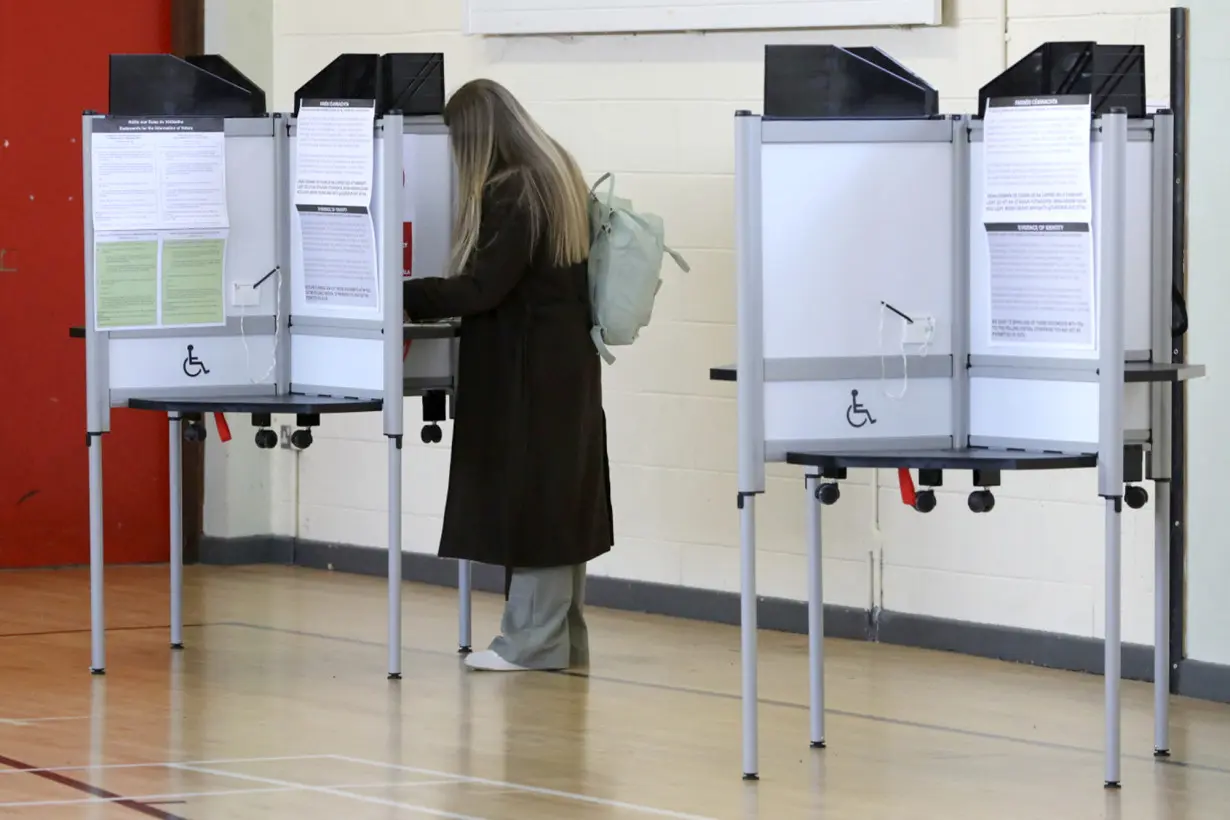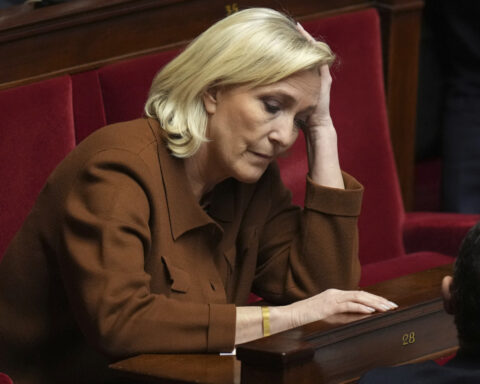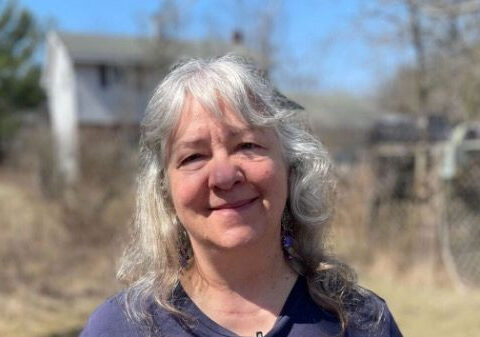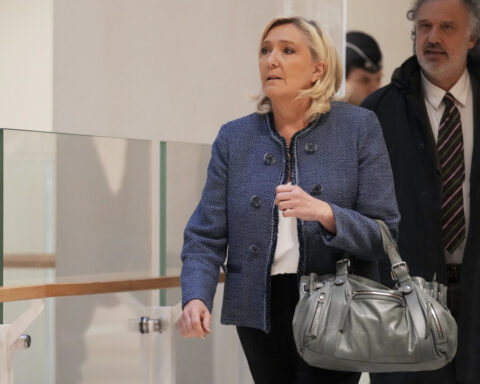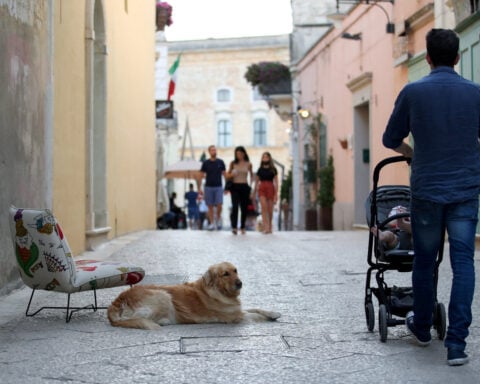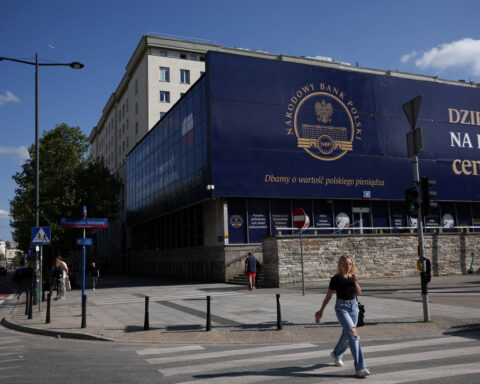DUBLIN (AP) — According to Ireland’s constitution, a woman’s place is in the home.
Irish voters will decide Friday — International Women’s Day — whether to change the 87-year-old document to remove passages the government says are outdated and sexist. The twin referendums are on deleting a reference to women’s domestic duties and broadening the definition of the family.
WHAT ARE THE REFERENDUMS ABOUT?
The first vote deals with a part of the constitution that pledges to protect the family as the primary unit of society. Voters are being asked to remove a reference to marriage as the basis “on which the family is founded” and replace it with a clause that says families can be founded "on marriage or on other durable relationships.” If passed, it will be the 39th amendment to Ireland’s constitution.
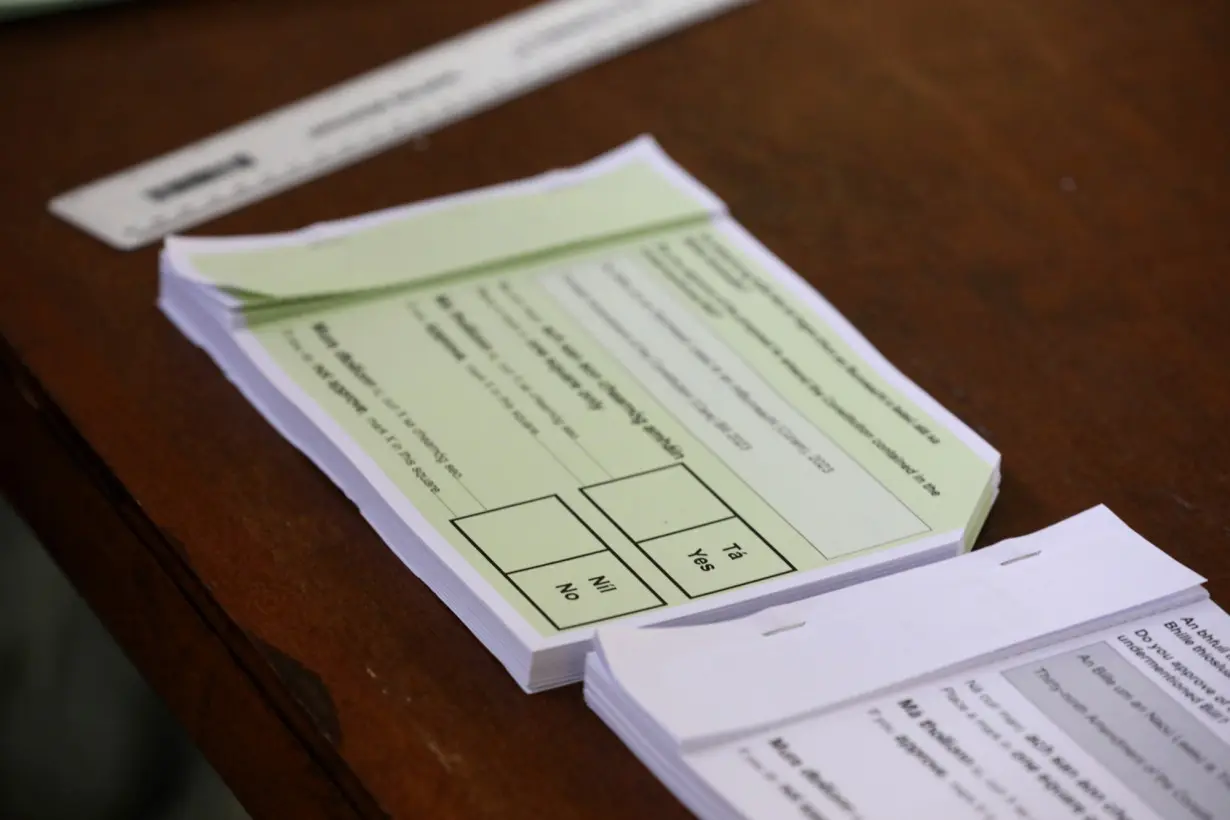
The second change — a proposed 40th amendment — would remove a reference to women’s role in the home as a key support to the state, and delete a statement that “mothers shall not be obliged by economic necessity to engage in labor to the neglect of their duties in the home.” It would add a clause saying the state will strive to support “the provision of care by members of a family to one another.”
WHY ARE THEY HAPPENING NOW?
Ireland’s constitution dates from 1937, when the country became a republic. Ireland has changed enormously since then, transforming from a conservative, overwhelmingly Roman Catholic country in which divorce and abortion were illegal, to an increasingly diverse and socially liberal society. The proportion of residents who are Catholic fell from 94.9% in 1961 to 69% in 2022, according to the Central Statistics Office.
The social transformation has been reflected in a series of constitutional changes. Irish voters legalized divorce in a 1995 referendum, backed same-sex marriage in a 2015 vote and repealed a ban on abortions in 2018.
Prime Minister Leo Varadkar announced a year ago, on International Women’s Day 2023, that the government would hold a referendum to enshrine gender equality and remove discriminatory language from the constitution. The new votes are about removing “very old-fashioned language” and recognizing the realities of modern family life, said Varadkar, Ireland's first ethnic minority leader, who is in a same-sex relationship but not married.
DO THE CHANGES HAVE WIDESPREAD SUPPORT?
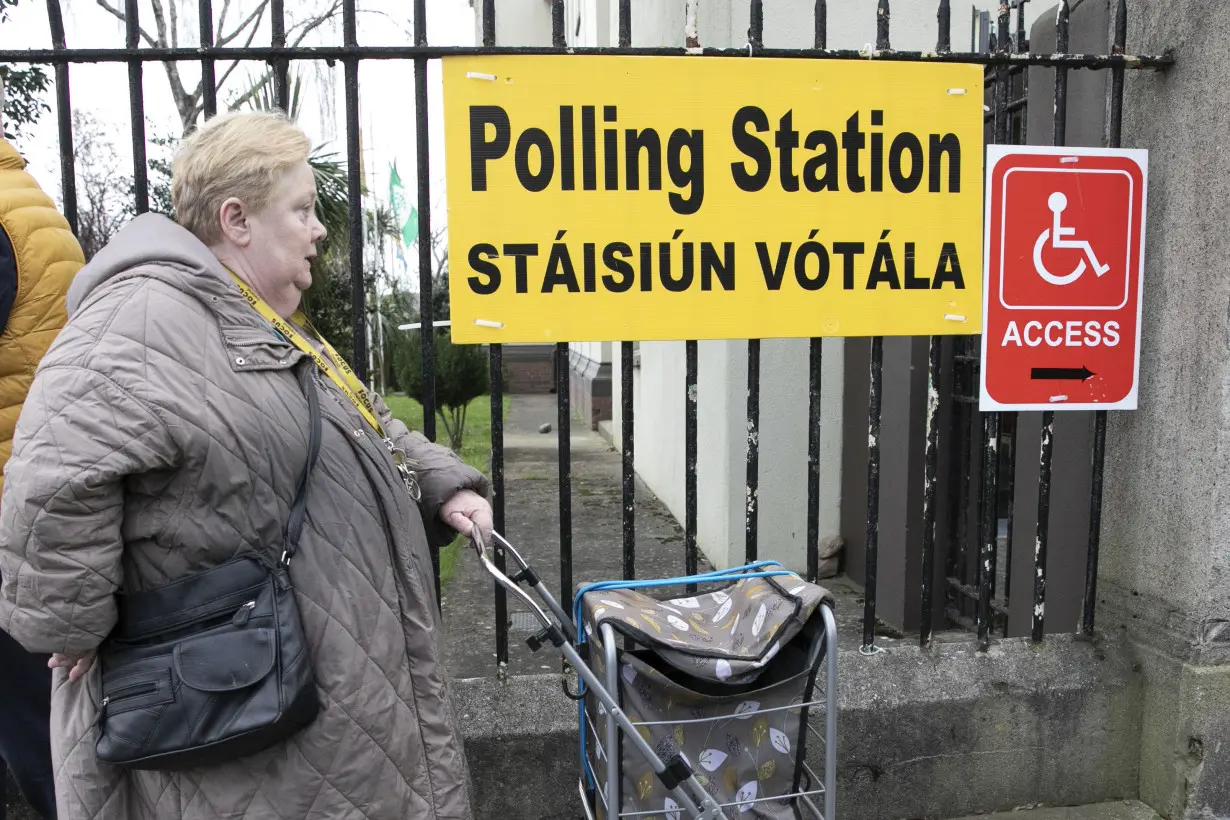
Opinion polls suggest support for the “yes” side on both votes, but many voters remain undecided, and turnout may be low.
The current debate is much less charged than the arguments over abortion and gay marriage. Ireland’s main political parties all support the changes, including centrist government coalition partners Fianna Fail and Fine Gael and the biggest opposition party, Sinn Fein.
Many women support the change. Tracy Carroll from County Meath in central Ireland, who cares full-time for her two children, said women had long been told “our place in society is in the home and looking after our children and our husbands.”
“We’ve moved from that, but the constitution hasn’t moved from that, and a women’s place is anywhere she wants it to be,” she told Sky News.
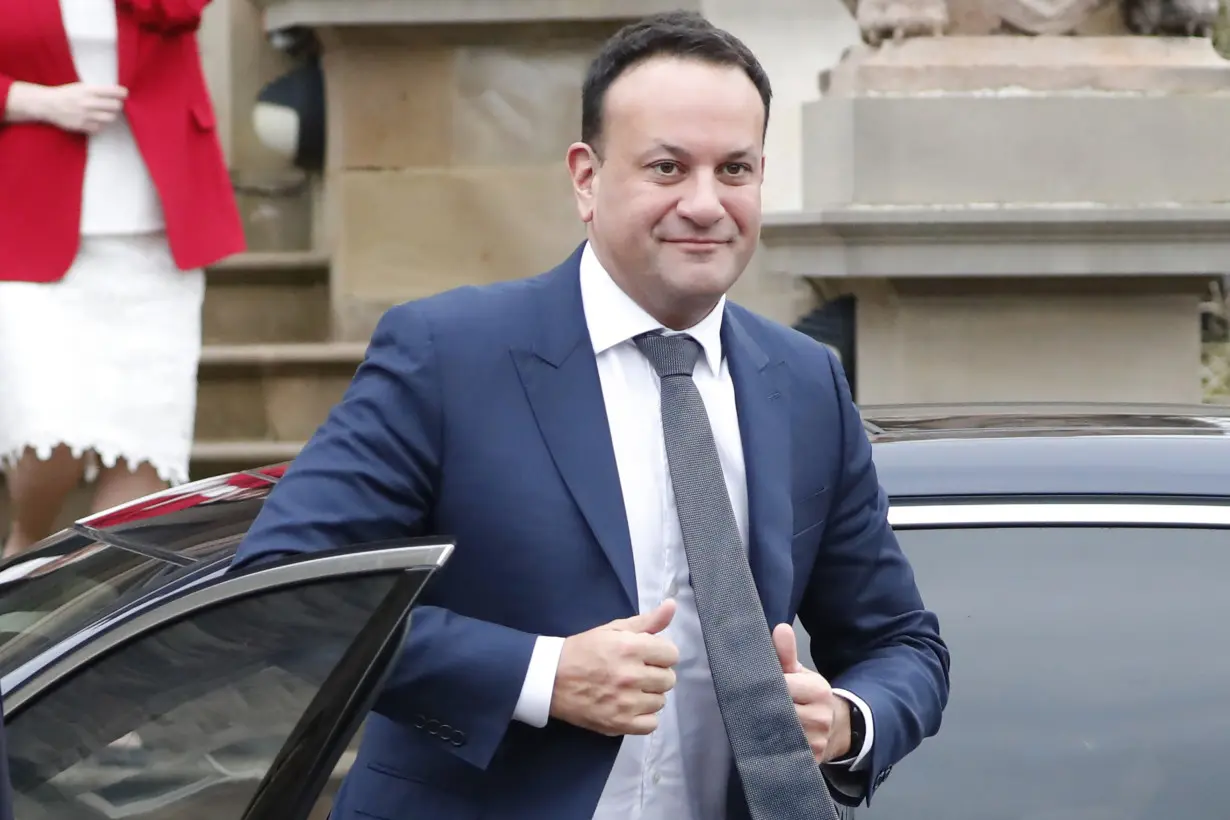
One political party calling for “no” votes is Aontú, a traditionalist group that split from Sinn Fein over the larger party’s backing for legal abortion.
Aontú leader Peadar Tóibín said the government’s wording is so vague it will lead to legal wrangles and most people “do not know what the meaning of a durable relationship is.”
The Free Legal Advice Centers, a legal charity, has expressed concern the change to the section on care contains “harmful stereotypes such as the concept that the provision of care … is the private responsibility of unpaid family members without any guarantee of state support.” Some disability rights campaigners argue the emphasis on care treats disabled people as a burden, rather than as individuals with rights that should be guaranteed by the state.
Varadkar said that when it comes to care, “people have responsibilities and the state has responsibilities too.”
He said rejecting the changes “would be a setback for the country.”
“If there’s a ‘no’ vote, on Saturday morning hundreds of thousands of children in Ireland will wake up to hear that Irish society has decided that their family isn’t a constitutional family, isn’t an equal family, just because their parents aren’t married," Varadkar said this week. "If there’s a ‘yes’ vote, we’ll be saying as a society that all families are equal.”
WHEN WILL THE RESULT BE KNOWN?
Polling stations are open from 7 a.m. to 10 p.m. Friday. Counting of the ballots from each of Ireland’s 39 constituencies starts at 9 a.m. Saturday morning, with results likely to be known Saturday afternoon or evening.
Irish citizens who are 18 or older – some 3.3 million people -- are eligible to vote.
__
Lawless reported from London.

 Trump has begun another trade war. Here's a timeline of how we got here
Trump has begun another trade war. Here's a timeline of how we got here
 Canada's leader laments lost friendship with US in town that sheltered stranded Americans after 9/11
Canada's leader laments lost friendship with US in town that sheltered stranded Americans after 9/11
 Chinese EV giant BYD's fourth-quarter profit leaps 73%
Chinese EV giant BYD's fourth-quarter profit leaps 73%
 You're an American in another land? Prepare to talk about the why and how of Trump 2.0
You're an American in another land? Prepare to talk about the why and how of Trump 2.0
 Chalk talk: Star power, top teams and No. 5 seeds headline the women's March Madness Sweet 16
Chalk talk: Star power, top teams and No. 5 seeds headline the women's March Madness Sweet 16
 Purdue returns to Sweet 16 with 76-62 win over McNeese in March Madness
Purdue returns to Sweet 16 with 76-62 win over McNeese in March Madness
